Raymond Ma
Command A: An Enterprise-Ready Large Language Model
Apr 01, 2025



Abstract:In this report we describe the development of Command A, a powerful large language model purpose-built to excel at real-world enterprise use cases. Command A is an agent-optimised and multilingual-capable model, with support for 23 languages of global business, and a novel hybrid architecture balancing efficiency with top of the range performance. It offers best-in-class Retrieval Augmented Generation (RAG) capabilities with grounding and tool use to automate sophisticated business processes. These abilities are achieved through a decentralised training approach, including self-refinement algorithms and model merging techniques. We also include results for Command R7B which shares capability and architectural similarities to Command A. Weights for both models have been released for research purposes. This technical report details our original training pipeline and presents an extensive evaluation of our models across a suite of enterprise-relevant tasks and public benchmarks, demonstrating excellent performance and efficiency.
To Code, or Not To Code? Exploring Impact of Code in Pre-training
Aug 20, 2024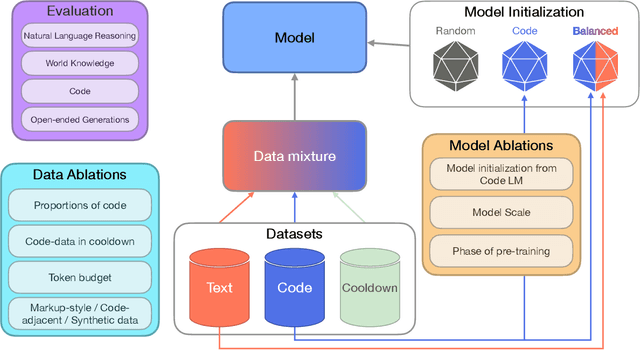
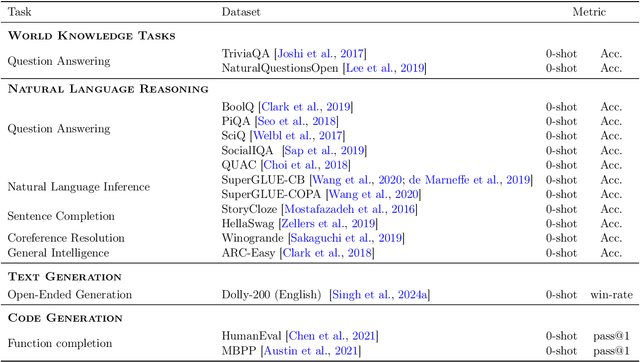
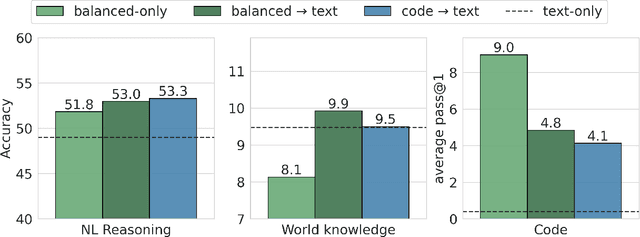
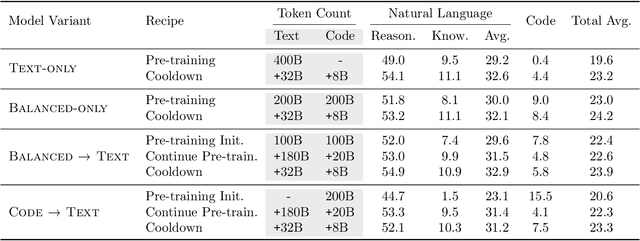
Abstract:Including code in the pre-training data mixture, even for models not specifically designed for code, has become a common practice in LLMs pre-training. While there has been anecdotal consensus among practitioners that code data plays a vital role in general LLMs' performance, there is only limited work analyzing the precise impact of code on non-code tasks. In this work, we systematically investigate the impact of code data on general performance. We ask "what is the impact of code data used in pre-training on a large variety of downstream tasks beyond code generation". We conduct extensive ablations and evaluate across a broad range of natural language reasoning tasks, world knowledge tasks, code benchmarks, and LLM-as-a-judge win-rates for models with sizes ranging from 470M to 2.8B parameters. Across settings, we find a consistent results that code is a critical building block for generalization far beyond coding tasks and improvements to code quality have an outsized impact across all tasks. In particular, compared to text-only pre-training, the addition of code results in up to relative increase of 8.2% in natural language (NL) reasoning, 4.2% in world knowledge, 6.6% improvement in generative win-rates, and a 12x boost in code performance respectively. Our work suggests investments in code quality and preserving code during pre-training have positive impacts.
On Leakage of Code Generation Evaluation Datasets
Jul 11, 2024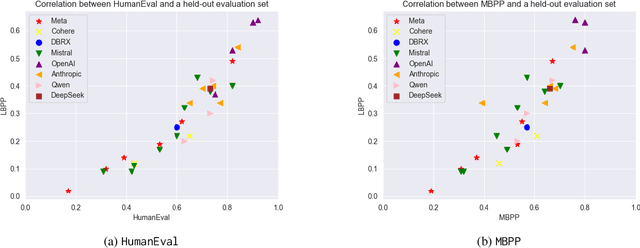
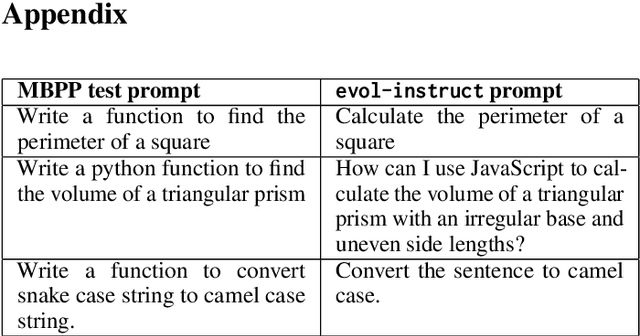
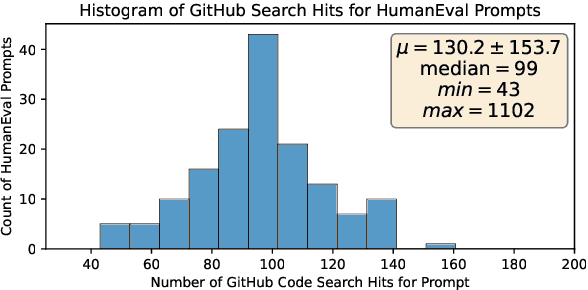
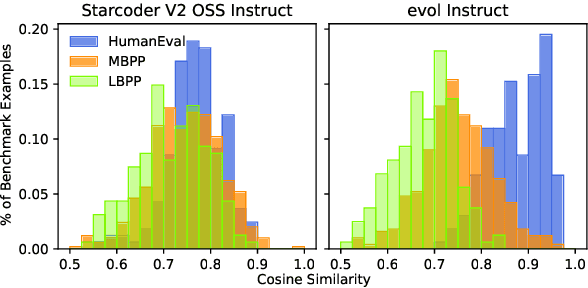
Abstract:In this paper we consider contamination by code generation test sets, in particular in their use in modern large language models. We discuss three possible sources of such contamination and show findings supporting each of them: (i) direct data leakage, (ii) indirect data leakage through the use of synthetic data and (iii) overfitting to evaluation sets during model selection. Key to our findings is a new dataset of 161 prompts with their associated python solutions, dataset which is released at https://huggingface.co/datasets/CohereForAI/lbpp .
 Add to Chrome
Add to Chrome Add to Firefox
Add to Firefox Add to Edge
Add to Edge